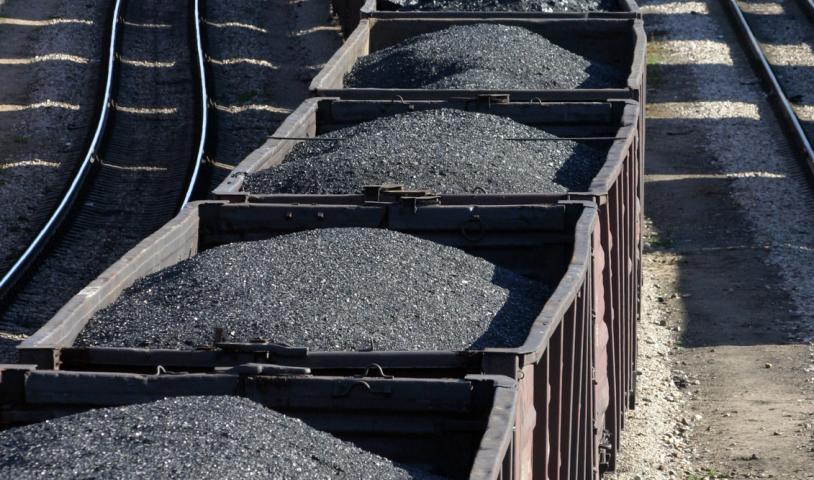Tria Donaldson: Alberta visit raises ugly truths about B.C. fossil fuel profiteering
Friday, February 12, 2010
I recently had the privilege of driving over the Rocky Mountains with 21 youth activists into what one of them called “the heart of conservative darkness” for a conference on campus sustainability. We were going to connect with youth leaders from across Western Canada and to brainstorm and share ideas about how to make our campuses greener. The conversation quickly turned to the vital role we play here in Western Canada at the front lines of the fight to stop runaway climate change.
The Rocky Mountains are one of the most beautiful natural landscapes in Canada, if not the world. Tourists flock from all over the world to check out the glaciers, the big horn sheep, the hot springs, and the bears. To some, the Rocky Mountains also divide us from them—“us” being environmentally friendly, tree-hugging folks from B.C., “them” being dirty oil-producing Albertans.
See also
Cathy Wilander and Eric Doherty: Scrub the greenwash off the Freeway Olympics
Celia Brauer: Superheroes needed ASAP to save us from paving paradise again
Carmen Mills: With B.C. building Gateway to climate chaos, it's time for direct action
Anne Murray: Paving paradise to put up the South Fraser Perimeter Road
But, visiting Alberta and some of B.C.’s own fossil-fuel-extraction hot spots, I have learned the mountains are about the only thing that separate us. Especially when you take into account B.C.’s very own growing fossil-fuel industry, and our own special role in expansion of the tar sands.
Under the federal Gateway strategy, B.C.’s pristine northern wilderness will be crisscrossed by oil pipelines to ship tar sands crude, Vancouver’s ports and highways expanded for coal shipping, and coal mines expanded to supply China with cheap energy. Each part of the project has a devastating impact on the environment, human health, and our ability to meet the B.C. government’s own emissions-reduction targets.
The proposed Enbridge Northern Gateway project would build two massive twin pipes between the port of Kitimat to Alberta’s tar sands. One pipe would carry crude oil; one would be full of condensate, the chemical used to transform the thick tar-like substance extracted from the oil sands into a product suitable for pipeline transfer. In the process, it would cross over 1,000 pristine rivers, many of which bear salmon and are watersheds for interior communities.
On the other end of the pipe in Kitimat, tankers would wait to transport the oil into the treacherous northern waters. As I heard recently, oil barges are like balloons, and B.C.’s northern passages are sharp pointy rocks. It is only a matter of time until something happens that will threaten sensitive marine life.
At the same time plans are underway to build miles of pipe to move tar sands crude through northern B.C., there are plans to expand coal mining throughout the province, and coal shipping through Deltaport.
The southern Gateway project is designed to make shipping consumer goods from the Asia-Pacific region and shipping coal and oil to the Asia-Pacific easier.
The highway expansion planned in the Lower Mainland is part of a port infrastructure expansion plan. This project would pave over some of the best agricultural land in the province and place the sensitive Burns Bog ecosystem at risk—all to move more fossil fuels out and move more containers of finished goods made abroad through the region on big trucks.
All of this in a year where natural gas extraction has surpassed forestry as B.C.’s number one economic driver. B.C. in it’s own right is now a petro-state economy.
While so much energy is put into fighting the tar sands, the B.C. government’s hypocrisy knows no bounds and it has not yet been made to answer for this glaring contradiction. While claiming climate leadership, the B.C. government has opened up this province to fossil fuels extraction on an unprecedented scale. For a government that has recognized the impact that runaway global warming will have on this province and the world, this is unacceptable. What sort of leadership is that?
At the conference in Edmonton, we talked a lot about these projects and what it means for activists on both sides of the Rockies. What is abundantly clear is that the tar sands are not the only megaproject we need to shut down. B.C.’s own fossil fuel profiteering marks us as climate hypocrites.
To be real climate leaders, we need to stop pointing fingers at Alberta and realize that we all need to work together to transition our economies to be more just and sustainable.
The youth at the conference in Edmonton gave me reason to be hopeful about the future and our potential to make change. We have a lot of work ahead of us but we will face these challenges together and we know we must succeed.
Tria Donaldson is a youth climate activist that has been involved with the goBeyond project, the Sierra Youth Coalition, and the Canadian Youth Climate Coalition. She is currently the Vancouver Island outreach coordinator for the Wilderness Committee